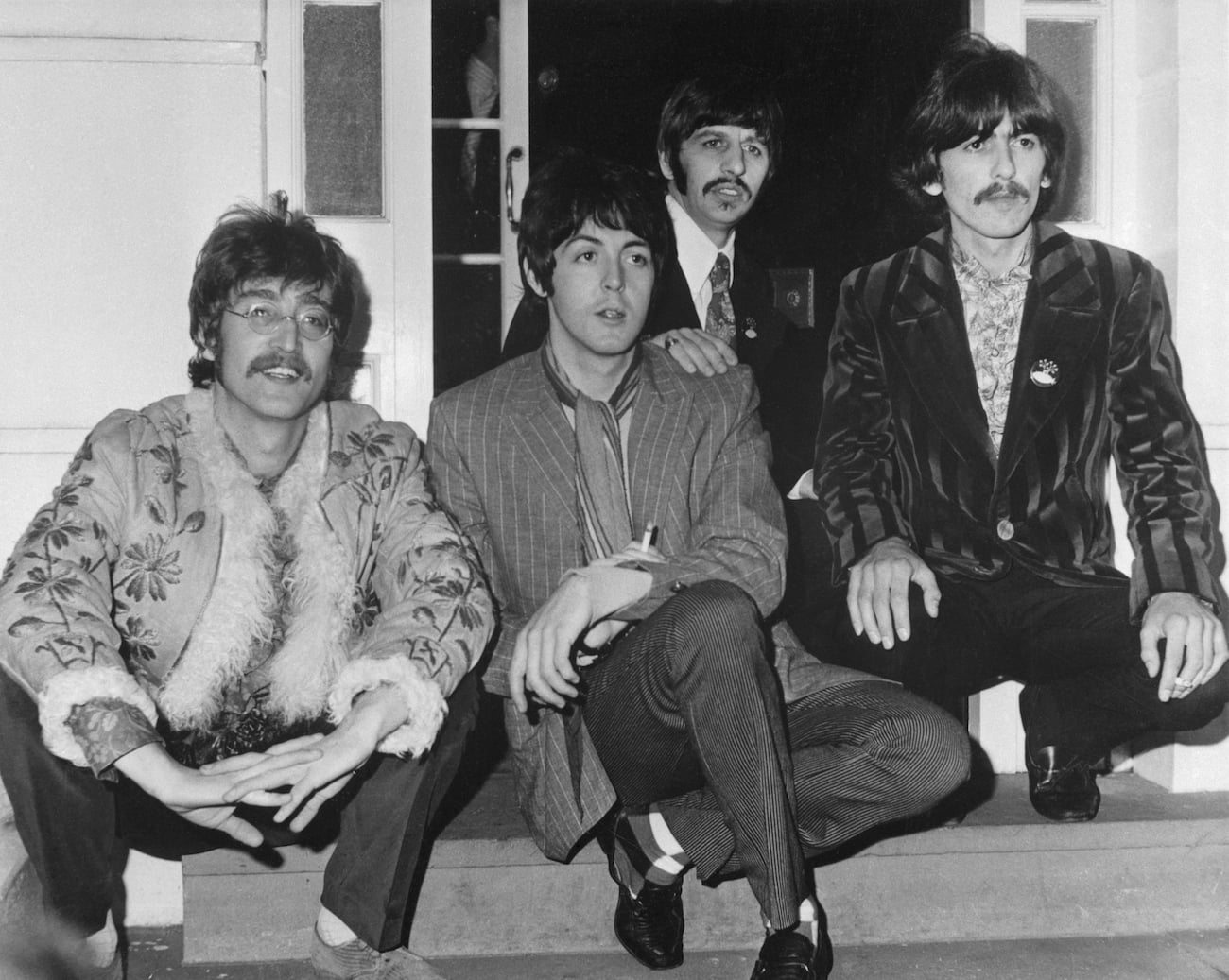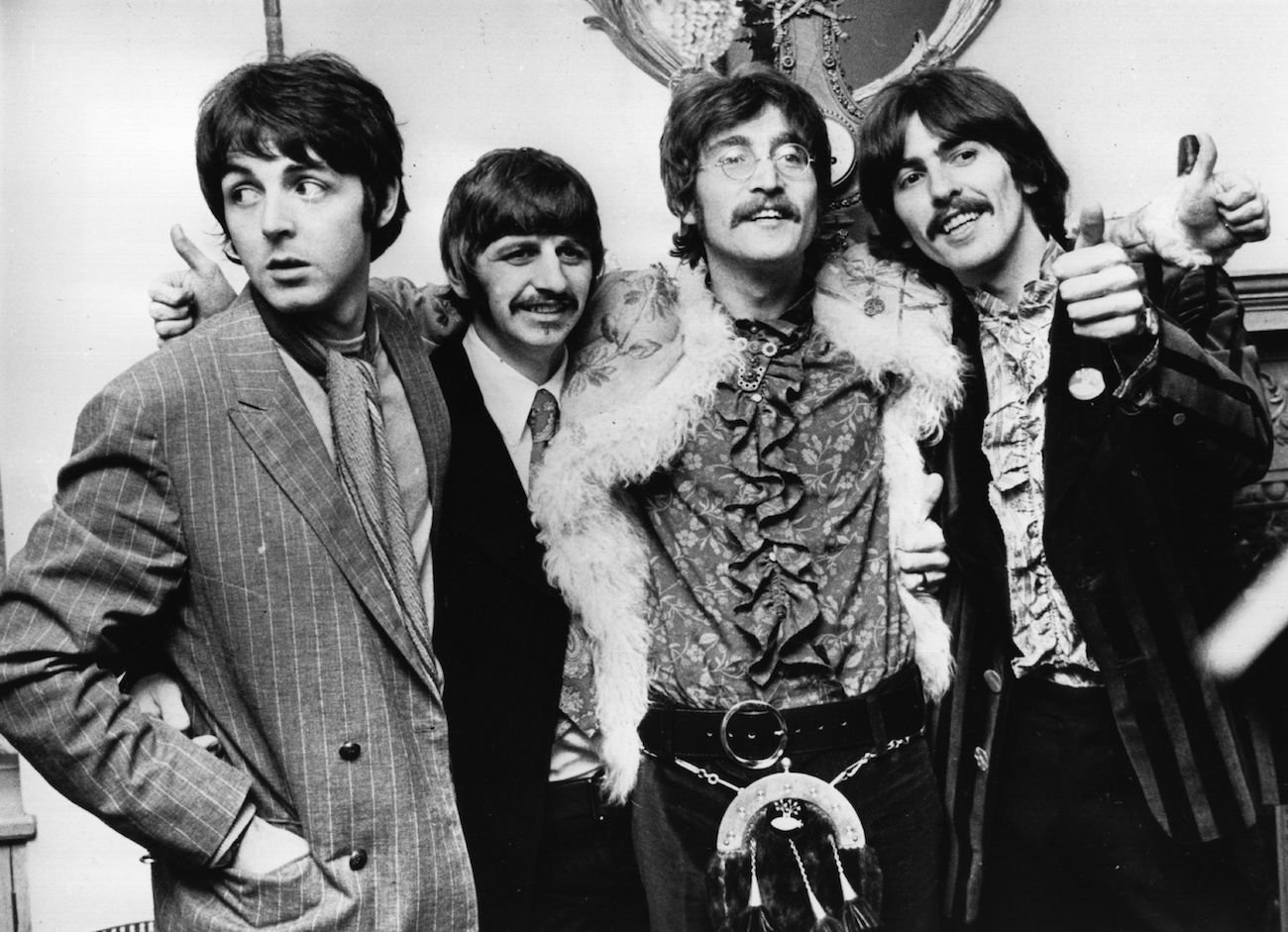
George Harrison Didn’t Know Where the Garbage Can Clatter Came From on The Beatles’ ‘Sgt. Pepper’ CD
George Harrison didn’t understand where the garbage can clatter came from on The Beatles‘ Sgt. Pepper CD. The Beatles guitarist preferred listening to his former band’s albums in their original form, vinyl.

George Harrison didn’t like listening to The Beatles’ music, especially ‘Sgt. Pepper,’ on CD
George always liked things to be unaltered, untampered, and authentic. That included his and The Beatles’ music. It’s not hard to imagine what was going through George’s head when the group first started releasing their albums on CD.
During a 1987 interview with Charles Bermant (per George Harrison on George Harrison: Interviews and Encounters), George revealed his thoughts on how The Beatles’ music, specifically Sgt. Pepper sounded on CD. He liked the older versions better.
“I did buy a CD player when they issued them, yeah,” George explained. “I listened to some of them, I still prefer the old versions, how I remember them on vinyl. There’s a lot of stuff that you can hear now that’s good.
“In some cases, there’s a lot of stuff that you shouldn’t hear so loudly, that’s somehow come out in the mix. On Sgt. Pepper I keep hearing this horrible-sounding tambourine that leaps out of the right speaker. It was obviously in the original mix, but it was never that loud.”
George thought that the tambourine sounded like a garbage can clatter.
George didn’t know where the garbage can clatter came from on The Beatles’ ‘Sgt. Pepper’ CD
George mentioned the clattering on The Beatles’ Sgt. Pepper CD during an interview with MuchMusic. The interviewer said there were many new things to perceive in the new CD version of the 1967 album. George didn’t understand where some sounds came from, especially the awful ones.
“Yeah, it’s pretty strange,” George said. “And then there’s that tambourine; it sounds like an old garbage can lid, and it sort of keeps coming out the right speaker; there’s a clatter clatter clatter. I don’t know where that came from.”
The interviewer asked if that was because the sound was the last thing added to the song in the recording studio. “I don’t know,” George said. “Don’t know how it got there. Maybe it’s on the original mix but quieter.
“I think some of those CDs; I’m not sure if they did something to them or if-it just gives you the ability to sort of get behind and hear what’s happening whereas on the vinyl, they were all packed in there neat.”
George didn’t think the airplane noise on “Back in the U.S.S.R.” sounded good either. He said the noise was loud and went on forever. “It’s ridiculous. There’s nothing like that on the vinyl. Some things jump out a bit too much.”
The former Beatle said the band had no control over how their music was released
Bermant pointed out to George that there were still 30 or so songs not on CD. He asked the former Beatle how he would make them available. George explained that it wasn’t The Beatles’ business to decide how their music was distributed anymore since they lost control of their catalog.
“Well, it’s none of our business anymore; when our contract expired, we lost any control we had over the Beatles product,” George said. Still, George explained how he would’ve released the remaining Beatles’ music.
“I suppose if you took all the songs you could put them order in sequence of years as they were recorded, then as the technology advanced and our technique progressed, then you’d hear them in proper order. Or you could put all the singles on one, or the B-sides on another,” he said.
Unfortunately, George never got to see the day The Beatles finally got their catalog back after Paul McCartney’s lengthy battle. Since then, the band has been remastering their albums and releasing super deluxe editions.
George would’ve been happy with any new versions of his group’s songs as long as they stayed as authentic as possible and didn’t have any clattering.


